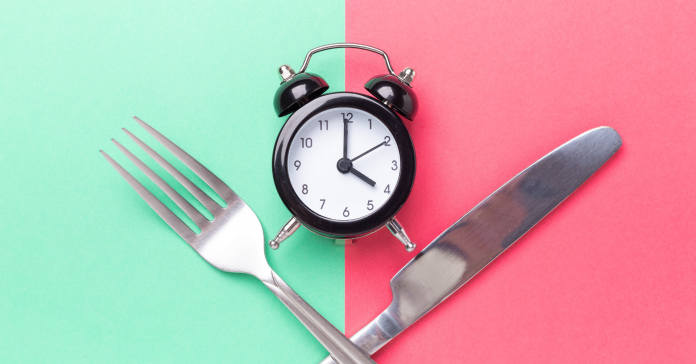Intermittent fasting, sometimes called intermittent energy deprivation, is a broad umbrella term for various meal cycles that change from non-feeding to voluntary re-feeding over a certain period.
The concept of fasting is based on the concept of‘ total calories in equals total calories out.’ Any calorie not spent is stored inside the body. When you fast, you limit your food intake so that your body is forced to use the stored calories, which will help you lose weight.
The biggest problem with intermittent fasting is that it does require some discipline on your part. If you’re willing to do it right, you’ll be able to make it work for you. But if you’re looking for an instant solution to your weight problem, then it may not be for you.
There’s also a limit to intermittent fasting as too much food abstinence can negatively affect your health. To help you avoid the negative effects of intermittent fasting, here are some ways to do it safely:
1. Always Consult Your Doctor Before Doing Any Fasting Method
There are different types of fasting methods, one of which is water fasting. This is a prolonged fasting method where you don’t eat anything but only drink water for a certain number of days. There are also timed fasting methods where you fast for several hours a day or one to two days a week. To do these methods safely, you should consult your general practitioner first.
Some people are not meant to fast for longer periods because they have underlying medical conditions, like diabetes or heart problems. So, better have a full body work up so you may know if you’re safe to do intermittent fasting.
2. Always Hydrate With Water
Another important thing that you need to know about fasting is that it can damage your organs and systems. You may also feel nauseous during your fasting days. To help you out, it’s recommended to drink plenty of water during your fast.
Hydrating while fasting will ensure that your organs work at an optimum rate even when you’re not fueling it with food. This will help them burn the excess calories stored inside your body so you’ll have the energy to go through your day.
3. Plan Your Workout Accordingly
It’s important to plan your workouts when you’re doing intermittent fasting. When you’re fasting, you should stick to less intense exercises because you might not have the energy to do intense workouts.
Although you can work out during your fasting hours or days, it’s still safer to do workouts hours after your meals or during your feeding window. This is to ensure you have enough energy to fuel your exercise, and you won’t pass out because you’re too hungry.
4. Eat The Right Foods During Your Feeding Window
The re-feeding period of your fasting phase is one of the most important aspects of intermittent fasting. When you eat after fasting, your cells are re-building themselves to support proper tissue and cognitive function. New proteins are also formed to replace old ones, and your cells are slowly building energy sources after hours of food deprivation.
Eating healthy food that supports cellular functions is essential when doing intermittent fasting safely. Ensure you have a balanced meal with the right amount of carbohydrates, proteins, and good fats. You should also eat fruits and vegetables so your body will replenish the vitamins and minerals it lost during the fasting stage.
5. Don’t Overeat During Your Feeding Window
After hours of depriving your body of food, you may be tempted to eat as much as you can during your feeding schedule. The first thing you should know about intermittent fasting is that you’ll have to eat food when your body tells you that you’ve had enough. The reason for this is that you want to get into a fast phase and still be able to lose weight. This can be done in two ways: either eating only a small amount or eating very slowly over several days.
Summary
Aside from weight loss, intermittent fasting has plenty of health benefits, such as reducing stress and anxiety. When the body is in a state of starvation, it’s relaxed, which makes it less likely to suffer from aches and pains, anxiety, and headaches.
To fully experience these benefits, you need to follow safety protocols when doing intermittent fasting. Always consult your doctor before doing prolonged fasts and make sure you still live a healthy lifestyle. Proper diet and exercise are still the keys to ensure you’re fit and healthy while engaging in intermittent fasting.


